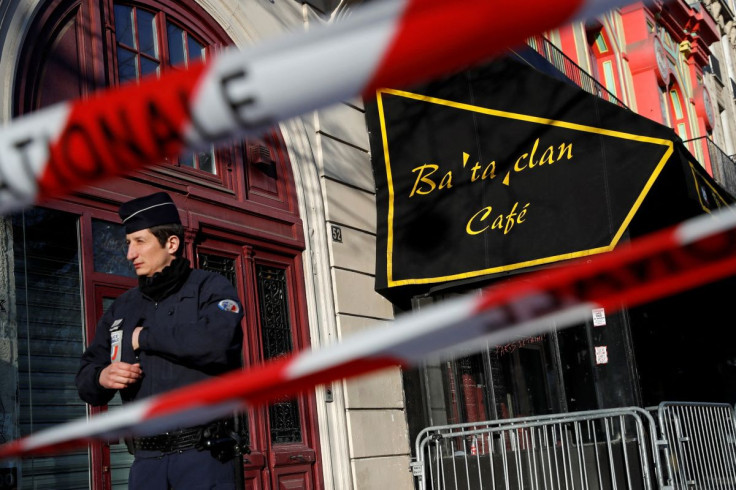Verdict Expected On Wednesday In Paris Islamist Attacks

Crowds gathered outside a central Paris court on Wednesday to hear it hand down its verdict in the trial of suspects involved in the worst peacetime attack on France, the 2015 killing of 130 people in a coordinated gun-and-bomb rampage by Islamist gunmen.
The Bataclan music hall, six bars and restaurants and the perimeter of the Stade de France sports stadium were targeted in hours-long attacks across the French capital that shook France and left deep scars on the country's psyche.
The verdict and sentencing are expected from 1630 GMT, but could also come later in the evening.
"We are waiting for it anxiously because it is the definitive end of this legal process," said Philippe Duperron, the father of one of the 90 who died in the Bataclan attack.
"But we're also waiting for it calmly because we have always said that we trust the court's decision, and we have no doubt that the court will pronounce a fair sentence," added Duperron, who chairs the 13onze15 association of survivors and victims' families.
It has been a trial like no others, not only for its exceptional length of 10 months, but also for the time it devoted to allowing victims to testify in detail about their ordeal and their struggles in overcoming it, while families of those killed spoke of how hard it was to move on.
"We became this huge community which wanted justice to exist, and that was very strong," said Arthur Denouveaux, a survivor of the Bataclan attack, and the president of Life for Paris, another victims' association.
"I think we can be proud of what we achieved," he said, adding that the trial surpassed victims' expectations "because terrorists spoke, terrorists in a way answered to our testimonies, that was so unexpected, that never happens in terrorist trials."
ISLAMIC STATE "SOLDIER"
Main suspect Salah Abdeslam, who faces possible life imprisonment with no possibility of early release, a sentence only handed out four times in France, started the trial by proudly saying he was a "soldier" of Islamic State, which has claimed responsibility for the attacks.
But he and some of the other accused later apologised to the victims.
The 32-year old Belgium-born Frenchman is the only surviving member of the group suspected of carrying out the attacks. He says he chose not to detonate his explosive vest and on Monday urged the court not to give him a harsh sentence.
"I made mistakes, it's true, but I'm not a murderer, I'm not a killer", he said.
Thirteen other people, 10 of whom are also in custody, were also in the courtroom, accused of crimes ranging from helping provide the attackers with weapons or cars to planning to take part in the attack. Six more were tried in absentia.
Some have taken responsibility for their role in the attacks. Others have not said a word. Defendants are not required to enter a plea in French trials.
The ruling can be challenged on appeal. For some victims, the fact that such a long, intense trial is about to end, stirs mixed feelings.
"It is a relief," Denouveaux said, "because it means that this trial is behind me and I can go on with my life."
"There is also a little bit of fear... (the trial) filled our lives for the past 10 months and what will replace it? But we have overcome a terrorist attack, it will be easier to overcome the emptiness following the trial."
© Copyright Thomson Reuters 2024. All rights reserved.







